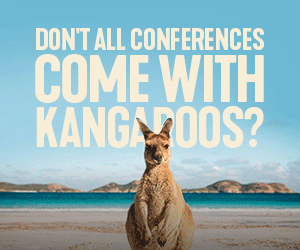Europe teams together for Sports Events

When London & Partners coordinated weekend-long 2014 RideLondon, a high-profile cycling event, they not only saw an economic impact upward of £15 million, the city was also able to reach a media audience of over 95 million. In addition to 73 hours of media exposure shining a spotlight on London and the event, more than half of RideLondon’s spectators said they were more motivated to cycle for leisure from watching these celebrated cyclers hitting the city’s streets in person.
Lane Nieset writes
Case studies like this one are just one of the tools the newly formed international association of event hosts (eventhosts.org) is hoping to share by collaborating as a group when it comes to hosting sports events around the globe. The idea formed this spring in Lausanne during the City-to-City session at the SportAccord Convention, with more than 50 cities, regions and countries agreeing to come together to share knowledge and experience when bidding and planning international sports events.
“We want it to be something that is genuinely representative of communities around the world, so we don’t just want to be something that’s for people who have hosted the Olympic games like London has in the past,”explains Iain Edmondson, Head of Major Events at London & Partners, one of the members of the new group. “We want to give a clear message that we’re open for business for as many different cities and countries as possible, and therefore become more powerful in our voice saying that events are great if they’re thoughtfully delivered in a way that gives a real return to local communities that helped make them happen.”
Impacts of Forming the International Association of Event Hosts
 Headquarters caught up with one of the group’s members, Paul Bush OBE, EventScotland’s Director of Events, to hear first-hand how the organisation will directly impact both the economy and events industry in Europe.
Headquarters caught up with one of the group’s members, Paul Bush OBE, EventScotland’s Director of Events, to hear first-hand how the organisation will directly impact both the economy and events industry in Europe.
What are some of the benefits you’re hoping to see from working together as a group?
I think the most important benefit is the fact that we’ve got a group of people talking together. That might not sound very meaningful, but if I were to wind the clock back 10 years, it was considered to be quite a competitive industry, and it still is because we all compete against each other to win events. The fact that these guys are preparing to share best practice is something we’ve never had in this industry before.
Is there anything else you’re striving for when it comes to event tourism efforts as a whole across Europe?
I see that we’ll be able to get consistency and unity in terms of impacts around events, whether they’ll be hard or soft. Most of the world (apart from North America) is driven by government sectors. Governments or cities are the big investors in events, so you’re looking at gross value added or that it can create full-time equivalent jobs.
What are some of the challenges you’re hoping to tackle or overcome as a group?
Hopefully stop rights fees being hyped disproportionately so that only certain parts of the world with lots of money can actually aspire to bid in the future. There is a challenge in that area that we have to face head-on that some rights holders have disproportionately increased their rights fees against the value of their properties.
What are you anticipating as far as long-term impacts of the collaboration?
Initially we see a share in best practice and we don’t see it as a formalised group, as a constituted body, and I don’t think we need that. As soon as you go down that route, sometimes it becomes much more difficult to actually achieve what you want to achieve. The collegiate nature of the group is actually more important.
Three Strategies for Improving Sports Tourism
1. Recognise Events’ Real Value
Event tourism can add tangible value to the places where they’re held, whether it be through volunteering efforts or coaching development and by measuring this, hosts can anticipate how great an event’s return may be. “There’s a much greater acceptance that events drive benefits across the whole 360-degree arena of most government portfolios, so for the first time ever, we’ve gotten acceptance that event tourism is part of a core proposition for a secure country,” Paul Bush OBE explains. “Event tourism is a major player now in most countries’ economic sustainability. This is an industry that governments look to quite importantly particularly as many countries have moved from manufacturing industry bases to service sector bases.”
2. Share Best Practices
In an industry where even cities in the same country may be competing against one another to win bids, one of the most important challenges is to set aside this naturally competitive nature and work together as a team to share best practices. Look at it as a transfer of knowledge, where host cities can gain information from previous hosts on ways to improve and plan a successful event.
3. Offer Support for Newer Hosts
By providing resources and training for first-time hosts of large-scale events, or for those who haven’t put on an event of this size in a number of years, the event’s success level will dramatically improve and offer a greater return both for the community as well as the rest of Europe. These events can build on similar previous ones, learning and growing from past experiences to widen the net.
Other Articles
About Us
Supported by the Union of International Associations (UIA), the International Association of Professional Congress Organisers (IAPCO) and the Interel Group, the global public affairs and association management consultancy, Headquarters Magazines serve the needs of international associations organising worldwide congresses.















